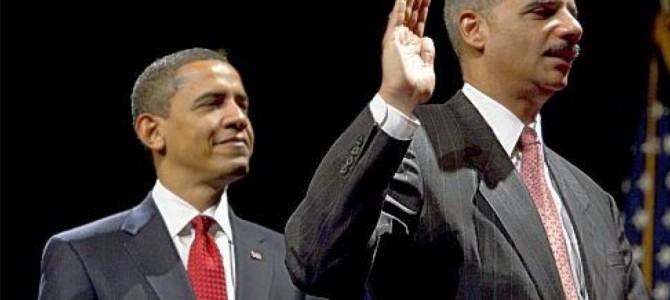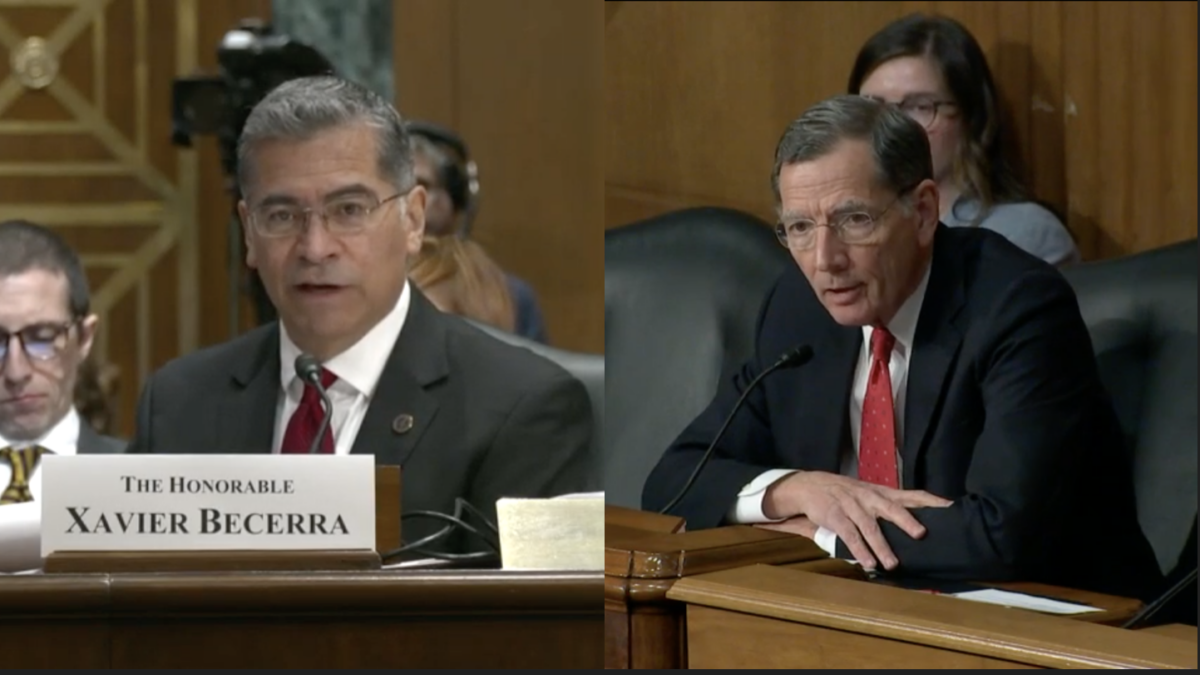Just before President Obama’s speech yesterday, DOJ’s Office of Legal Counsel, which exists to provide presidents with advice on the legality of policy changes, released a memo (PDF) purporting to explain why the Department of Homeland Security’s new immigration relief program wasn’t a violation of law.
The memo is not very long, but there are some pieces that need mentioning.
1. The pre-implementation release from OLC is highly suspect.
Ordinarily, OLC and the administrations it serves is loath to release its legal reasoning to the public in advance of policy changes. In fact, often OLC refuses to release its memos even in the face of FOIA lawsuits after the fact. For example, the New York Times had to fight the government all the way up through a federal appeals court to get a hold of even a redacted version of OLC’s justification for drone-killing Anwar al-Awlaki.
While OLC opinions are considered more-or-less binding on the executive branch, the ones related to presidential pet projects typically take a heck of a beating from the courts and from public legal scholars once they’re made public. For example, OLC’s “torture memos” from President Bush 43’s term are routinely excoriated, and their authors vilified. Just two years ago, OLC approved Obama’s practice of declaring the Senate to be in recess and appointing board members to the National Labor Relations Board even though the Senate said it was not in recess. All nine members of the Supreme Court found that OLC-approved practice unconstitutional.
On the other hand, Obama has also disregarded OLC advice when it doesn’t suit him, as he did when OLC told him it would be illegal to go to continue his hostilities in Libya beyond the temporary period authorized by the War Powers Act. Of course, this legal dispute happened in secret, with the public only finding out about it after the fact.
So the release of OLC’s legal explanation for Obama’s immigration action now, as opposed to in response to a lawsuit or a FOIA request, is quite suspect. It suggests that the opinion is being used, not so much to make a legal case, but as a PR move.
As expected, the OLC's arguments are persuasive if you ignore the existence of the actual political system and its debates.
Ross Douthat (@DouthatNYT) November 21, 2014
2. OLC questioned the legality of Obama’s DACA program.
Buried in a footnote, the authors of the memo mention that OLC was not entirely chill about Obama’s proposal to defer the removal of alien children on a class-wide basis:
Before DACA was announced, our Office was consulted about whether such a program would be legally permissible. As we orally advised, our preliminary view was that such a program would be permissible, provided that immigration officials retained discretion to evaluate each application on an individualized basis. We noted that immigration officials typically consider factors such as having been brought to the United States as a child in exercising their discretion to grant deferred action in individual cases. We explained, however, that extending deferred action to individuals who satisfied these and other specified criteria on a class-wide basis would raise distinct questions not implicated by ad hoc grants of deferred action. We advised that it was critical that, like past policies that made deferred action available to certain classes of aliens, the DACA program require immigration officials to evaluate each application for deferred action on a case-by-case basis, rather than granting deferred action automatically to all applicants who satisfied the threshold eligibility criteria.
This should be sending up red flags. First, the phrase “as we orally advised,” suggests, although we do not know for sure, that a formal, written legal justification examining the DACA proposal or its implementation was never completed by OLC. Second, it is hard to see how DACA has not been extended on a mere class-wide basis rather than a case-by-case basis, which OLC apparently found was “critical” to making the program lawful.
Prestigious DOJ Office of Legal Counsel basically questioned legality of entire 2012 DACA program –see footnote 8 http://t.co/EdfFTjSxSN
Mickey Kaus (@kausmickey) November 21, 2014
3. OLC’s reasoning for the legality of Obama’s new program would apply to every president going back to Eisenhower.
The OLC memo recounts past presidential exercises of “deferred action,” which is a particular expression of prosecutorial discretion in the immigration context. For example, Presidents Reagan and Bush 41 used it after the 1986 amnesty. President Clinton’s INS used it following passage of the Violence Against Women Act. President Bush 43 used it following the Hurricane Katrina disaster when it disrupted some student visa holders’ ability to meet the requirement that they attend school.
The reasoning of OLC was that the use of deferred action in those cases was consonant with Congressional goals—like IRCA and VAWA—or unexpected world events—like Hurrican Katrina. Each of the prior uses of deferred action that OLC cites, however, occurred after a relevant change in law or change in country conditions.
But OLC’s reasoning for why Obama’s new program is legal is nothing like that. OLC says that Obama’s new program is consonant with Congress’s goals of favoring the immediate family members of U.S. citizens and lawful permanent residents:
This second justification for the program also appears consonant with congressional policy embodied in the INA. Numerous provisions of the statute reflect a particular concern with uniting aliens with close relatives who have attained lawful immigration status in the United States. See, e.g., Fiallo v. Bell, 430 U.S. 787, 795 n.6 (1977); INS v. Errico, 385 U.S. 214, 220 n.9 (1966) (“‘The legislative history of the Immigration and Nationality Act clearly indicates that the Congress . . . was concerned with the problem of keeping families of United States citizens and immigrants united.’” (quoting H.R. Rep. No. 85-1199, at 7 (1957)).
But, as you can see, that Congressional “goal” goes all the way back to the Immigration and Nationality Act of 1952 that, as amended, is still in force today. So there has been no recent change in law or country conditions that Obama is reacting to. OLC is simply declaring that presidents, apparently, have had this power for sixty years. That in itself is highly questionable.
Moreover, precisely because the legal justification is that presidents could do this for decades, the enforcement of certain dates, particularly the January 1, 2010 cut-off for eligibility, is unusual. Why the arbitrary date of January 1, 2010? As a policy matter, Obama must set a date far enough back so as to mitigate the opportunities for fraud and to avoid drawing more illegal aliens to the United States in response to a rumored amnesty. But as a legal matter, the date is entirely arbitrary. Unlike past presidents who set eligibility requirements in response to changes in law or country conditions, Obama is simply making up his requirements as he sees fit.
4. OLC has approved the concept of the “anchor baby.”
For years, various fever swamps on the Right have muttered about anchor babies. This was the idea—false, but persistent—that all an alien had to do to gain lawful status in the U.S. is have a baby here. This was not actually the case under the immigration statute. But it is precisely the case under Obama’s new program that for aliens present in the United States prior to January 1, 2010, so long as they have not been convicted of any crimes, all they have to do is have a child and they get to stay here. In other words, Obama and OLC just approved the concept of the anchor baby.
An interesting, although probably not very widespread related issue, is raised because the cut-off for when that child must be born is the end of this year. It’s not inconceivable that some aliens with entries prior to 2010 and due dates in the first week of January of the coming year might hope to induce labor to qualify for Obama’s immigration relief.
footnote in DOJ memo notes only oral advice was given on legality of DACA … guess they didn't want a paper trail http://t.co/vB1XU14Qsh
Jonathan Strong (@j_strong) November 21, 2014
In short, the OLC memo is noteworthy more for the ways that it departs from prior practice than for its conformity. We truly are in a brave new world of executive power.









